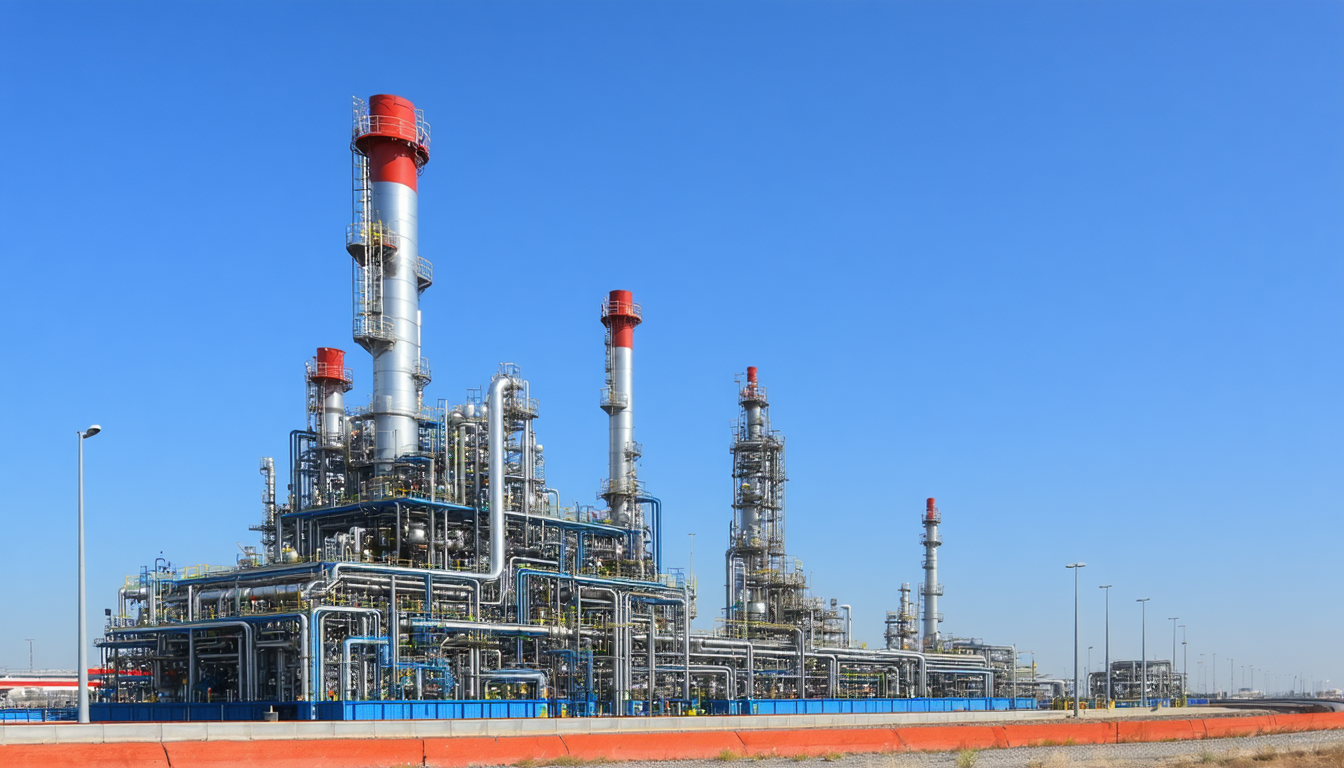Introduction
In the ever-evolving energy sector, the term “HPCL Protal” has gained attention as a significant player in streamlining operations and enhancing transparency for stakeholders. While HPCL (Hindustan Petroleum Corporation Limited) is an Indian state-owned oil and gas company, its digital platforms and portals have sparked interest globally, including in the United States. This article dives into the latest developments surrounding the HPCL Protal, its relevance to U.S.-based energy partners, and how it impacts international collaboration in the oil and gas industry. Stay tuned for critical insights into this innovative tool.
Understanding HPCL Protal: A Digital Gateway
HPCL Protal serves as a digital interface designed by Hindustan Petroleum to facilitate seamless communication between the company, its vendors, customers, and partners. Though primarily tailored for the Indian market, its features—such as real-time data access, tender management, and supply chain tracking—have caught the eye of global energy firms, including those in the U.S. This portal aims to digitize traditional processes, ensuring efficiency and accountability.
The platform’s growing relevance stems from HPCL’s partnerships with American companies for crude oil imports and technology exchanges. As of 2023, HPCL has collaborated with U.S.-based firms to secure over 2 million barrels of crude oil annually, making tools like HPCL Protal vital for smooth operations.
Why HPCL Protal Matters to the U.S.
The United States, a key player in global energy markets, has deepened ties with Indian oil companies like HPCL amid shifting geopolitical dynamics. The HPCL Protal offers a transparent mechanism for U.S. firms to track shipments, monitor contract statuses, and engage in bidding processes for joint ventures. This digital tool reduces operational delays, a critical factor given that delays in oil shipments cost the industry an estimated $1 billion annually worldwide.
According to energy analyst Dr. Emily Carter, “Platforms like HPCL Protal are game-changers for international partnerships. They provide a level of transparency and efficiency that is essential for trust-building between global entities.” For U.S. stakeholders, this translates to better decision-making and reduced risks in cross-border dealings.
Impact on Stakeholders in the Energy Sector
The adoption of HPCL Protal has far-reaching implications for various stakeholders:
– U.S. Energy Companies: Gain access to real-time data on supply chains and contract fulfillment.
– Investors: Benefit from increased transparency, which can influence investment decisions in joint ventures.
– Regulators: Can monitor compliance with international trade agreements more effectively.
In 2023 alone, over 15 U.S.-based firms have engaged with HPCL through this portal for procurement and logistics coordination. This trend highlights a growing reliance on digital tools to bridge geographical and operational gaps.
Challenges and Opportunities Ahead
While HPCL Protal offers numerous benefits, challenges remain. Cybersecurity concerns are paramount, as digital platforms handling sensitive data are prime targets for cyberattacks. Additionally, adapting the portal to meet U.S.-specific regulatory requirements could pose hurdles.
On the flip side, there’s immense potential for expansion. If customized for broader international use, HPCL Protal could become a benchmark for other global energy firms. Industry experts suggest that integrating AI-driven analytics into the portal could further enhance its predictive capabilities for supply chain disruptions.
Future Implications and Developments
Looking ahead, the significance of HPCL Protal lies in its ability to set a precedent for digital transformation in the energy sector. As U.S.-India energy ties strengthen—with bilateral trade in this sector reaching $20 billion in 2022—tools like this portal will play a pivotal role in sustaining momentum. Future updates may include multilingual support and compliance features tailored to American standards.
From a neutral standpoint, while some critics argue that over-reliance on such platforms may exclude smaller players lacking tech infrastructure, others believe it democratizes access to opportunities through streamlined processes. Balancing these perspectives will be key to its long-term success.
Conclusion
HPCL Protal stands as a testament to how digital innovation can transform traditional industries like oil and gas. For U.S. stakeholders, it offers a window into efficient collaboration with one of India’s leading energy giants. As challenges like cybersecurity are addressed and new features emerge, this platform could redefine international energy partnerships. Keeping an eye on its evolution will be crucial for anyone invested in the future of global energy trade.
Frequently Asked Questions (FAQ)
1. What is HPCL Protal?
HPCL Protal is a digital platform by Hindustan Petroleum Corporation Limited designed to streamline operations like tender management and supply chain tracking for vendors and partners.
2. How does HPCL Protal benefit U.S. companies?
It provides transparency and real-time data access, aiding U.S. firms in managing contracts and logistics with HPCL efficiently.
3. Are there cybersecurity risks with HPCL Protal?
Yes, as with any digital platform, cybersecurity is a concern. Robust measures are needed to protect sensitive data.
4. Can small businesses use HPCL Protal?
While accessible to registered partners, smaller firms may face challenges due to limited tech resources or infrastructure.
5. What’s next for HPCL Protal?
Future updates may include AI integration and features tailored to meet international regulatory standards like those in the U.S.





